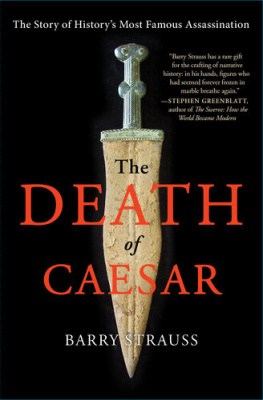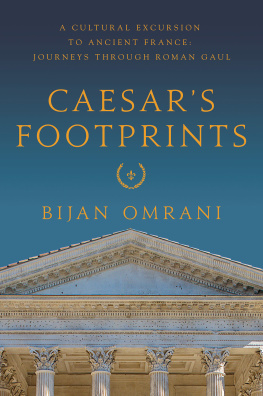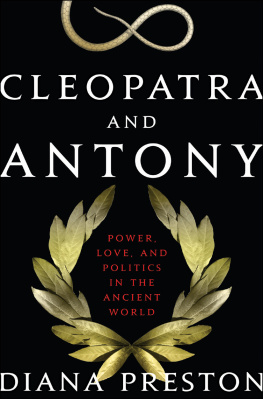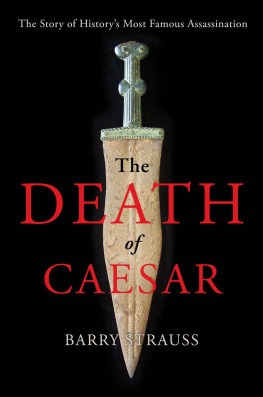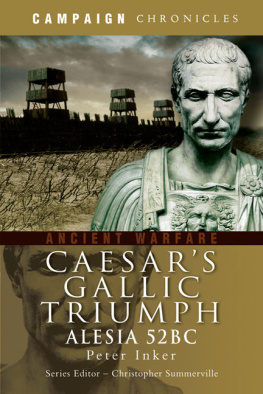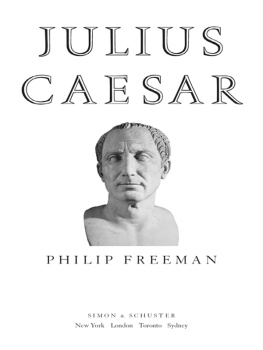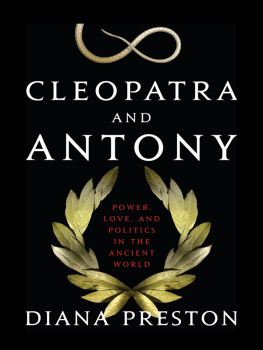To my friend Stephanie Poletti
First published in Great Britain in 2013 by
Pen & Sword Military
an imprint of
Pen & Sword Books Ltd
47 Church Street
Barnsley
South Yorkshire
S70 2AS
Copyright Paolo de Ruggiero 2013
HARDBACK ISBN: 978 1 78346 270 4
PDF ISBN: 978 1 47383 632 7
EPUB ISBN: 978 1 47383 456 9
PRC ISBN: 978 1 47383 544 3
The right of Paolo de Ruggiero to be identified as the Author of this Work
has been asserted by him in accordance with the Copyright, Designs and
Patents Act 1988.
A CIP catalogue record for this book is available from the British Library
All rights reserved. No part of this book may be reproduced or
transmitted in any form or by any means, electronic or mechanical
including photocopying, recording or by any information storage and
retrieval system, without permission from the Publisher in writing.
Typeset in Ehrhardt by
Mac Style, Bridlington, East Yorkshire
Printed and bound in the UK by CPI Group (UK) Ltd,
Croydon, CRO 4YY
Pen & Sword Books Ltd incorporates the imprints of Pen & Sword
Archaeology, Atlas, Aviation, Battleground, Discovery, Family History,
History, Maritime, Military, Naval, Politics, Railways, Select,
Social History, Transport, True Crime, and Claymore Press,
Frontline Books, Leo Cooper, Praetorian Press, Remember When,
Seaforth Publishing and Wharncliffe.
For a complete list of Pen & Sword titles please contact
PEN & SWORD BOOKS LIMITED
47 Church Street, Barnsley, South Yorkshire, S70 2AS, England
E-mail:
Website: www.pen-and-sword.co.uk
Contents
List of Maps
List of Plates
Biography lends to death a new terror.
Oscar Wilde
Introduction
I am no orator, as Brutus is ,
But, as you know me all, a plain, blunt man ,
that love my friend
In Shakespeares Julius Caesar, these are the few concise words that Mark Antony uses to introduce himself to the congregation of mourning Romans two days after the Ides of March. It is the one-sweep-of-a-brush self portrait of an understated simpleton, someone of good heart and simple feelings, but with a flat personality and nothing of interest to read between the lines. At best, the opener could signify the loyalty of a faithful subordinate, of scarce intellectual capacity and reach. But Shakespeare had something more in store for us: the rapid transformation of a man once he makes it to the stand, from subdued and mellow to powerful and inflammatory, so subtle in outsmarting Brutus and Cassius of their initial momentum, and in turning the tide of public sentiment against them. When the mask is removed, the plain man reveals himself to be sharp, psychologically shrewd and capable of charismatic delivery, and he outwits the intellectually refined and arrogant conspirators.
Which of these two men was really Mark Antony?
Born and raised in Rome, I still have vivid recollections as a child of my father and others in my family using the characterization of Marco Antonio to describe a man of an unusually tall, strong, and generally very athletic build. The expression could be taken at face value, and I dont think it carried any negative connotations, nor was it an example of the often traditionally held view that a man who stood out because of his physical appearance must therefore be intellectually lacking in some way. The expression has since fallen from common use as successive generations of Romans have become more and more oblivious to their heritage. As a modest but passionate amateur of the classical period, I, of course, find this regrettable. On the other hand, I have often asked myself if history has done Mark Antony a disservice by delivering to posterity a character that lent itself to the Hollywood big screen for the spectacular Cleopatra romance, a character that was praised, even by his enemies, for individual courage and good swordsmanship, but that was fundamentally lacking core leadership skills, had no strategic vision, was easily manipulated, especially at the hands of strong-willed women, was prone to excessive self indulgence and debauchery, and, most importantly, was driven by a blind thirst for personal power and self assertion. Brutus words in Shakespeares play sum it all up, when the plotters are debating and finally rejecting the possibility of assassinating him alongside the dictator:
He cannot do more than Caesars arm
when Caesars head is off.
Are we to believe that Marcus Brutus was fundamentally right, and that a couple of extra blows of his and Cassius daggers would have made no difference to the course of history? The biographer is faced with the commonplace tradition, inherited from mainstream historiography, of the man who moved up in the shadow of more exalted leaders, and who, when invested with power, misuses it for his own personal motives and for excessive indulgence and extravagance. Supposedly, he is faced with a man whose limited personality exposes his weakness for the adulation of devious courtesans, who is easy prey for strong willed women (who influence him adversely), and who in the end, motivated by insatiable and naked ambition, makes a bid for power with a devious and malicious oriental queen, and, who, when systematically outsmarted by his opponents has no other exit but a downward spiral of vice and moral laxity, and eventually suicide when all other options are exhausted.
Furthermore, the commonly accepted view is that of a man who is dwarfed by the other great personalities of the period, who tower over him in terms of intellectual calibre, rectitude, piety, loyalty, sense of the State, bravery, leadership, and generalship.
Common sense suggests that, paralleling the signature subtlety of Romes first Princeps, Augustan and imperial historiography did not operate a brutal damnatio memoriae of Mark Antony, but rather sought to attach elements of scorn, mockery, and caricature to the most visible traits of the personality of the Triumvir and denigrate his achievements while emphasizing the lack of judgment that caused his defeats. Shakespeare, on the surface, adheres to the stereotyped version of Antonys persona that is delivered to us by Plutarch a plain, blunt man and clearly reflects such widespread views through the mouths of his foes. But time and again, both in Julius Caesar and in Antony and Cleopatra , Shakespeare shows us a different man, passionate and impulsive, for sure, but with a noble soul and a certain intellectual finesse, charisma and elegance.
The life of this man, which was both at the very heart of the western hemisphere for over two decades and two troubled decades for that matter and absolutely central to all the events that shaped the Roman world through the end of the Republic, deserves one more look in an attempt to paint a portrait which does him more justice than we have seen so far. The aim of this work is to dispel the clichs appended to his image by the disinformation campaign carried out by Augustus sycophantic historians and poets, which have blighted his image and stalked his legacy over the centuries.
The accusations of ostentation levelled at him have also tarnished his image. His detractors dwell Cicero first and foremost on his flashy Italian displays during Caesars dictatorship: sporting treasures from his convoys, parading with lions on a harness, for example. But these anecdotes have also been read and interpreted as the superficial manifestation of a deeper and deliberate scorn for a status quo, a political class, and a social order that had outlived its times. Subscribing to this point of view, this book aims to collate, interpret, and further substantiate many of the arguments which support it. Superficial behaviour and mere anecdotes became hooks on which it has been too easy for imperial historiography to hang more substantive accusations and historical condemnations. Here is the historian Florus


